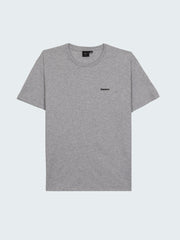It's no secret that microplastics are having a devastating impact on our environment. Surfers Against Sewage have been leading the charge to protect our oceans for almost three decades now, so we hand over to them to give us the stats and figures on microplastics and what you can do to help.
Surfers Against Sewage | Microplastics: The Facts
06.08.18
4 min read
Written by Sally Fish
Images by Greg Martin, Andy Hughes, Ian Lean
Plastic pollution has sadly become synonymous with any coastal activity, from surfing to swimming, beach holidays to wildlife watching – it is simply an expected part of our experience, but one we cannot and do not accept.
Microplastics are made up of plastic particles up to 5mm in size which are used as the raw material for plastic products (nurdles), as well as those produced from the degradation of existing, larger plastic products.
They are non-biodegradable and are found on every beach in the world. Scientists have even discovered them embedded in the Arctic ice.
There is an estimated 1.5 million tons of nurdles that are lost into the ocean every year and around 83% of water samples taken across the globe contain microplastics.
There are an estimated 5.25 trillion macro and microplastic pieces floating in the open ocean, weighing up to 269,000 tonnes. That’s the same as 1,345 blue whales and 500 times the number of stars in our galaxy.
Microplastics can change ecosystems by reducing species diversity and acting as vectors for spreading toxic chemicals. They are found to be ingested by zooplankton and lead to bio-accumulation within the food chain, which means their presence in human food is increasing.
Ingestion can also cause blockage and internal damage, leading to starvation and many other health complications for marine animals. Recent studies have revealed marine plastic pollution in 100% of marine turtles, 59% of whales, 36% of seals and 40% of seabird species examined.
Over 100,000 marine mammals and 1 million seabirds are killed by marine plastic pollution annually.
But it’s not all doom and gloom…
What we do
Locally
Our supporters love their local beaches and are passionate about protecting them so that everyone can enjoy their beauty. Together we can turn that passion into practical action against throwaway plastics.
Our recent Big Spring Beach Clean (7-15 April) saw over 35,500 inspiring individuals join us at 571 beaches, rivers, canals, marinas and lakes across the UK, removing a staggering 63 tonnes of marine plastic pollution.
We also currently have over 300 villages, towns and cities across the UK (which represent a combined population of over 24 million people!) working towards becoming Plastic Free Communities.
Nationally
Some changes need to happen at the national level to have the most impact. We lobby and work with government and industries for stronger legislation and innovation to curb throwaway plastic culture.
Our campaign for the 5p plastic carrier bag charge, led to an 80% decrease in the number of plastic bags used in England and our petition for a Deposit Return System (DRS) for bottles, glass and cans received over 300,000 signatures and was recently accepted by the Government.
Globally
We're collaborating with like-minded organisations across the world to build a global movement to change attitudes, behaviours and build action to reverse throwaway plastic culture.
What you can do
You can limit your personal contribution to microplastic pollution by avoiding products that contain microbeads, choosing clothing made from natural fibres, and avoiding single-use plastic products.
Make sure to follow the waste hierarchy by refusing plastics, reducing plastic consumption, reusing whenever possible and recycling what cannot be reused.
You can get involved in a beach clean near you or you can lead a Plastic Free Community. Check out our website for more details.
Plastic pollution is an issue that connects the environment with all parts of society and is something that we can take action on at every level. Indeed, it will only be through concrete, collective, positive action that we will be able to catalyse the shift that is needed to stop the flood of plastic pollution from overwhelming our world.
A little about Surfers Against Sewage…
Surfers Against Sewage is a national marine conservation and campaigning charity that inspires, unites and empowers communities to take action to protect oceans, beaches, waves and wildlife.
Together, we’re much more than our name suggests. We’ve made great progress on cleaning up our beaches from sewage and although the cleanliness of our seas remains in the DNA of the organisation, our new ‘sewage’ is plastic pollution.























































































